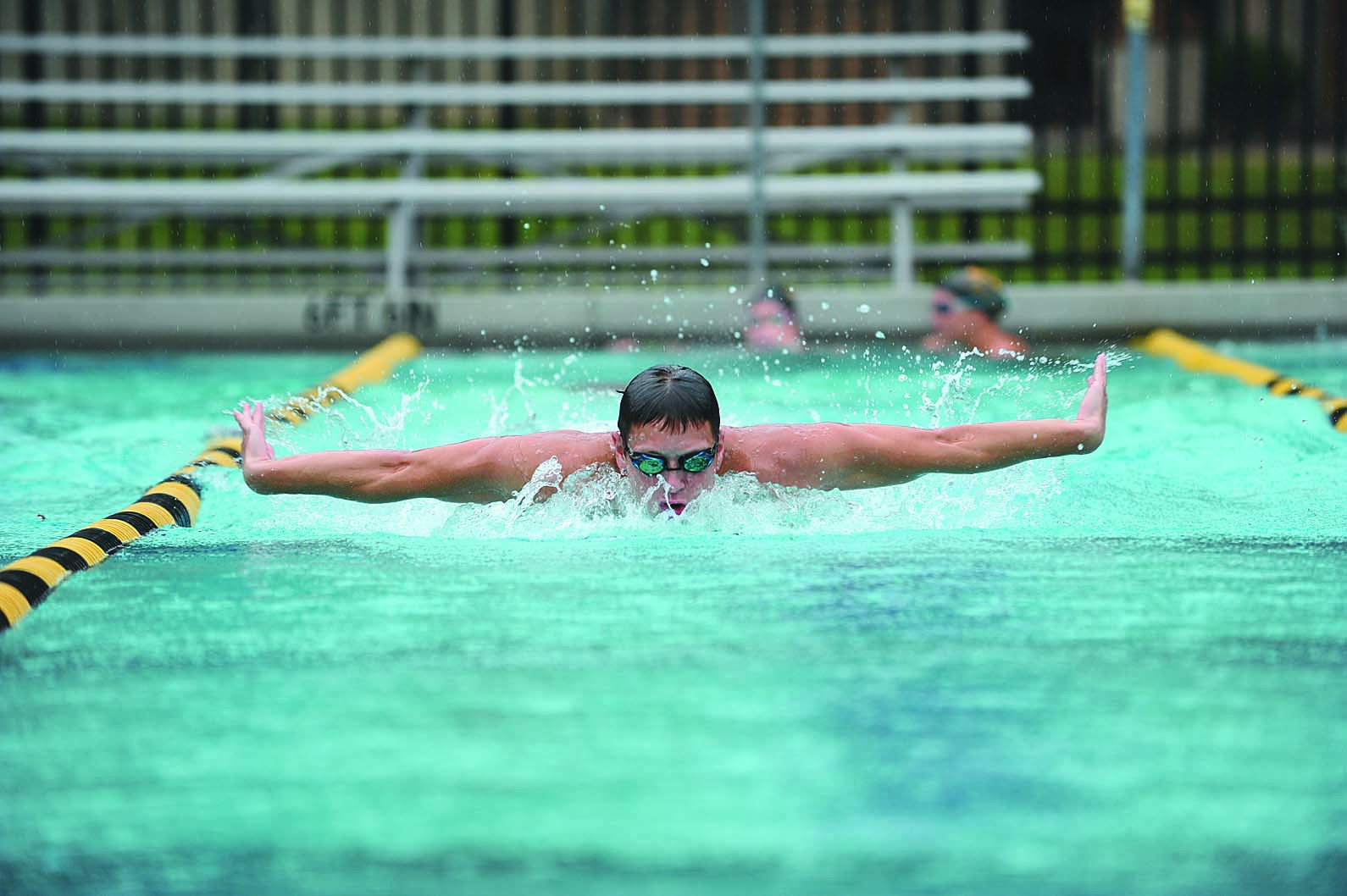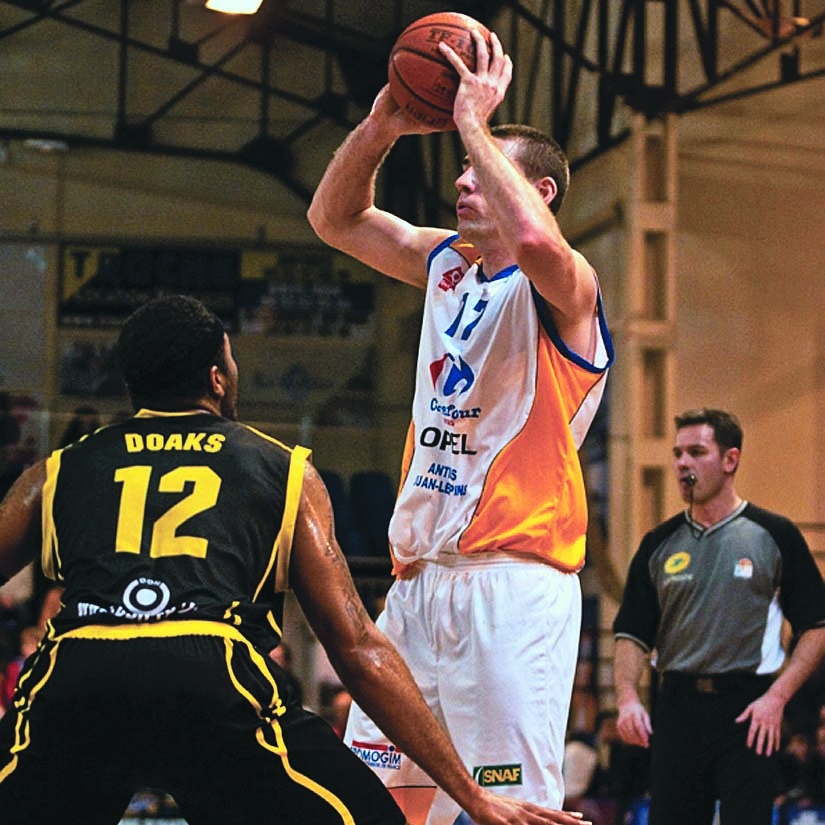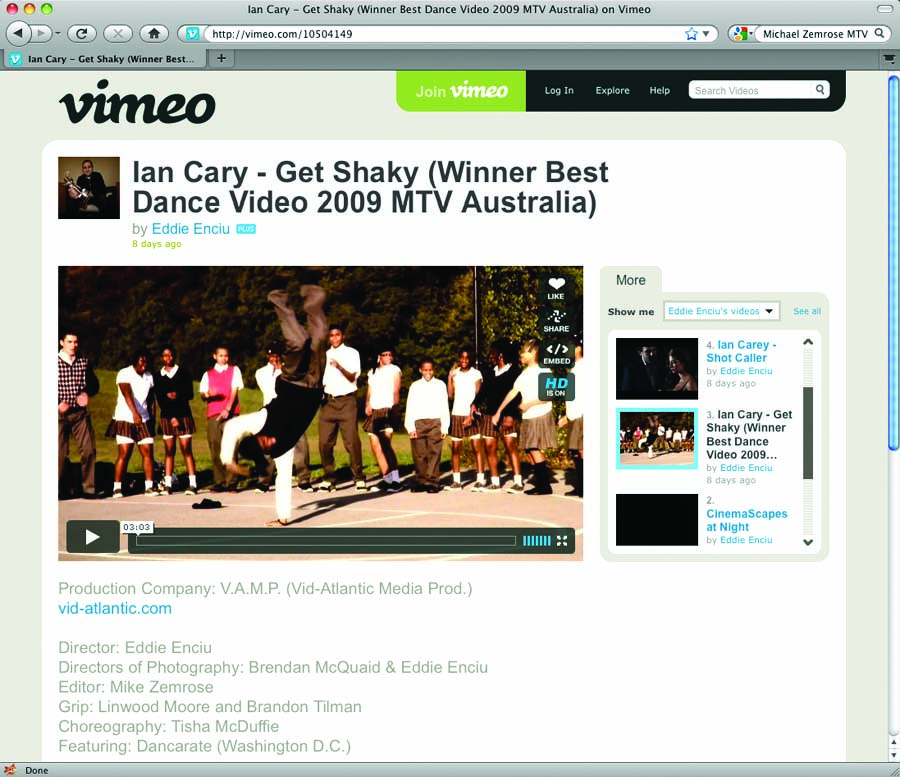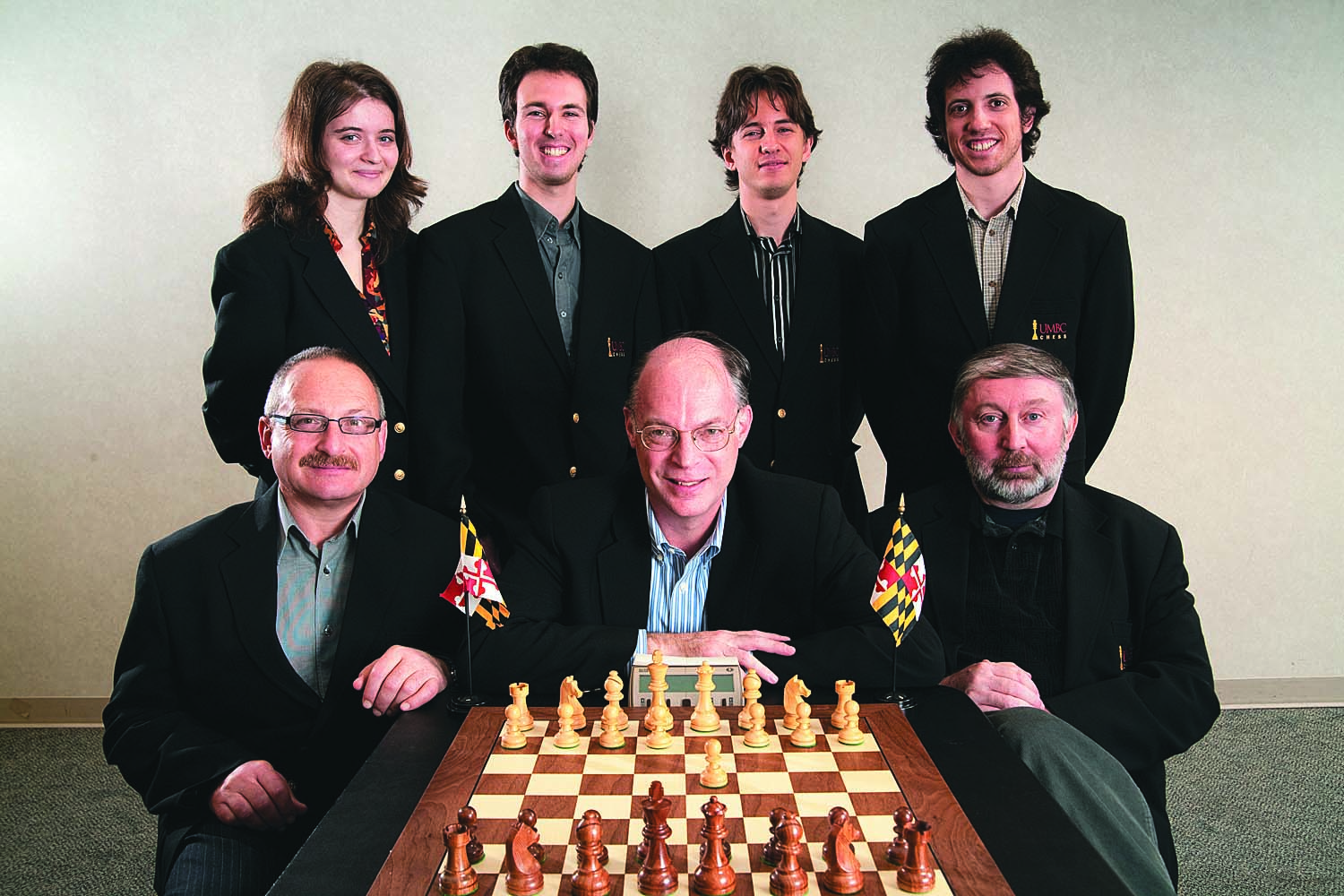Making a Splash
Wondering how the Retrievers’ men’s and women’s swimming and diving teams have sustained their tournament excellence over the past few years? A weeklong dose of sea and sand during winter break is part of the equation for success.
Each year, coach Chad Cradock ’97, psychology, takes his teams to Florida, where they stay in a hotel by the water in Boca Raton and enjoy life on the beach for their midseason training camp. The warm weather is a nice backdrop for some intensive training, however.
“We really focus on developing them and getting stronger,” said Cradock, who took the same trip as a UMBC swimmer from 1993 to 1997. “It’s also probably the best time for our team to do some real bonding and get closer as a family.”
Daily two-hour workouts at 6 a.m. and 2 p.m. are the main events of the day – with an occasional extra hour for non-swimming workouts.
The trip is part of the teams’ annual budget, but team members also do a healthy amount of fundraising to help pay for the trip. NCAA regulations require that teams compete if they make such a journey, so UMBC swam an exhibition meet against North Carolina State.
The Retrievers’ men have won six consecutive America East titles, while the women have taken two of the last three titles.
The trip did have its relaxing moments, including a day off from practice on New Year’s Eve spent at a dinner hosted by the director of the International Swimming Hall of Fame and a bowling excursion.
Jams and Jets
Pro basketball has put a lot of stamps in the passport of Andrew Feeley ’05, sociology. The former Retriever standout has had success with teams in Mexico, Japan, Slovenia and France since his graduation, including being named by hoops Web site Asia-Basket.com in 2009 as “Center of the Year” and “Import Player of the Year” in Japan.
Feeley also helped his Slovenian team advance to that country’s Super Cup finals before a move in January 2010 to the French professional club Antibes.
As a 6-foot-9 center, Feeley finds that playing the game is the easy part of the international hoops experience. “Basketball is basketball wherever you go,” he says. “Many English basketball terms are used all over the world: shoot, pass, pick and roll, rebound.”
There are some key rule differences. On the plus side for a big man, a ball can be touched in the basket in the
international game and not be considered goaltending. However, American players do have to learn to avoid a traveling violation by dribbling once before picking up their pivot foot.
“The biggest adjustment is the language barrier,” Feeley says. “It’s so hard, and funny, to be trying to talk to someone, looking at them right in the eye, and have no idea what they are saying. Most people in the world can speak a little English, but I have realized that they are uncomfortable trying to use it in public.”
Feeley’s solution? Combining foreign words he picks up along the way with some English in the same sentence. “It seems to work pretty well,” he says.
Reel is Real
In the music video for Ian Carey’s “Get Shaky,” the song’s throbbing beat impels students at a sleepy Montgomery County school to erupt into dance. Flashes of light and the funky sound punctuate an impromptu dance-off.
The video was edited by Michael Zemrose ’06, visual arts, whose efforts helped the clip win an Australian MTV Video Music Award. Ian Carey kept the statuette, but Zemrose did have his picture taken with the trophy.
“They let me spend some quality time with it,” he chuckles.
Carey asked him back to make the video for his song, “S.O.S.” – which was shot last July in the Florida Keys. That video has garnered over 418,000 views thus far.
The award and exposure have helped Zemrose win attention for his own video work. “People have definitely noticed it,” he says.
Zemrose teaches at Frederick Community College, and spends the balance of his time on videos. “I’ve been working with the Science Applications International Corporation doing military videos for the Army,” he observes. He is also pondering a return to UMBC to take an M.F.A. in imaging and digital arts.
In March, Zemrose caught the attention of Baltimore Ravens linebacker Terrell Suggs, who brought him aboard to work on a short film called Sisters.
While making films and videos sounds fun, it can also be grueling. “Especially on production days where I have to get up at the crack of dawn and work a 12 to 14 hour day with little chance to eat,” he says.
The Right Moves
When Harvard hosted the Pan-Am Intercollegiate Chess Tournament in 1990 in Cambridge, UMBC’s chess team placed 26th out of 27 teams that entered the competition.
Over the past two decades, however, UMBC’s chess teams have become a national power – and a symbol of UMBC’s drive to become “An Honors University in Maryland.”
In April, the team took home its sixth title in the annual President’s Cup tournament, dubbed “the Final Four of College Chess.” UMBC Chess Director Alan Sherman says that the victory came “against the strongest field of chess teams ever assembled at any Final Four.”
Since 1996, the team has won or shared first place in the Pan-Am Tournament – which determines the finalists for the President’s Cup – a record nine times, including a five-year streak between 1998 and 2002.
UMBC’s chess players at all levels are not resting on their laurels, says Richard Selzler, president of UMBC’s Chess Club. He says the umbrella group for the university’s chess activities is seeking to increase its funding and its membership.
One thing that hasn’t changed since 1990 is the need for funding. At that first Pan-Am tournament, a player’s father drove the team to Boston. “Fees have kept the club from going to tournaments,” Selzler observes. “Entry fees, hotel costs, and travel costs are expensive.”
Chess scholarships for its best players are part of the recipe for UMBC’s success. But the club itself welcomes all players, and is actively seeking to replace members who have graduated. “Hopefully we can recruit new members of all levels,” Selzler concludes.
Tags: Summer 2010




